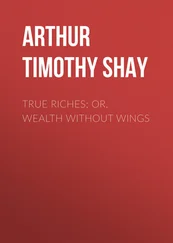Boa, at the close of Daniel’s tale, expressed a hearty sense of the wrong being done, which would have been more gratifying if he hadn’t seen her through so many other tirades in the Iceberg’s classroom. More surprising was Serjeant’s response. Though it amounted to no more than his saying that it didn’t seem fair, he must have known that he would be flying in the face of his father’s as-yet-unexpressed opinion.
After a long and dour look at his son, Grandison Whiting brightened to a formal smile, and said, quietly: “Justice isn’t always fair.”
“You must excuse me,” said Alethea, putting aside her cup and rising, “but I see that Father means to have a serious discussion, and that is a pastime, like bridge, that I’ve never learned how to enjoy.”
“As you please, my dear,” said her father. “And indeed, if the rest of you would prefer… ?”
“Nonsense,” said Boa. “We’re just beginning to enjoy ourselves.” She took hold of Daniel’s hand and squeezed. “Aren’t we?”
Daniel went, “Mm.”
Serjeant took another pastry from the plate, his fourth.
“Let us say, for the sake of argument,” said Boa pouring tea, and then cream, into Daniel’s cup, “that justice is always fair.”
Grandison Whiting folded his hands across his waistcoat, just above his watchchain. “Justice is always just, certainly. But fairness is to justice as common sense is to logic. That is to say, justice may (and often does) transcend fairness. Fairness usually boils down to a simple, heartfelt conviction that the world should be ordered with one’s own convenience in mind. Fairness is a child’s view of justice. Or a bum’s.”
“Oh, Father, don’t go off on bums.” She turned to Daniel. “I don’t know how many times we’ve had the same argument. Always about bums. It’s Father’s hobbyhorse.”
“Bums,” he went on imperturbably, “as opposed to beggars. Men who have chosen abjection as a way of life, without the extenuating circumstances of blindness, amputation, or imbecility.”
“Men,” Boa contradicted, “who simply can’t take responsibility for themselves. Men who are helpless before a world that is, after all, a pretty rough place.”
“Helpless? So they would have us believe. But all men are responsible for themselves, by definition. All adults, that is. Bums, however, insist on remaining children, in a state of absolute dependency. Think of the most incorrigible such wretch you’ve seen, and imagine him at the age of five instead of five-and-fifty. What change might you observe? There he is, smaller no doubt, but in moral terms the same spoiled child, whining over his miseries, wheedling to have his way, with no plans except for the next immediate gratification, which he will either bully us into giving him or, failing that, will attempt to seduce from us by the grandeur and mystery of his abasement.”
“As you may have gathered, Daniel, we’re not speaking of a completely hypothetical bum. There was a real man, one summer when we were in Minneapolis, with a shoe missing and a cut over one eye, and this man had the temerity to ask Father for a quarter. Father told him: ‘There’s the gutter. Be my guest.’ ”
“She misquotes me, Daniel. I said: I would prefer, really, to contribute directly. And dropped what change I had in my pocket down the nearest drain.”
“Jesus,” said Daniel, despite himself.
“Perhaps the moral was too astringent to be improving. I confess to having had more than my sufficiency of brandy after dinner. But was it an unjust observation? It was he who had chosen to go down the drain, and he’d achieved his desire. Why should I be called on to subsidize his more extensive self-destruction? There are better causes.”
“You may be just, Father, but you aren’t at all fair. That poor man had simply been defeated by life. Is he to be blamed for that?”
“Who but the defeated are to be blamed for a defeat?” Grandison Whiting asked in turn.
“The victors?” Daniel suggested.
Grandison Whiting laughed, somewhat in the manner of his beard. Even so, it didn’t register as wholly genuine: its warmth was the warmth of an electric coil, not of a flame. “That was very good, Daniel. I quite liked that.”
“Though you’ll note he doesn’t go so far as to say that you’re right,” Boa pointed out. “Nor has he said anything about all the horrors you’ve told us about Spirit Lake.”
“Oh, I’m slippery.”
“But really, Father, something ought to be done. What Daniel described is more than unfair — it’s illegal.”
“In fact, my dear, the question of its legality has been argued before several courts, and it’s always been decided that prisoners have a right to buy such food as they can to supplement what the prison provides. As to its fairness, or justice, I believe myself that the voucher system performs a valuable social function: it reinforces that most precious and tenuous of ties, which connects the prisoner to the outside world, to which he must one day return. It’s much better than getting letters from home. Anyone can understand a hamburger; not everyone can read.”
Daniel’s indignation had escalated from being politely scandalized to full rankling outrage. “Mr. Whiting, that is a sinful thing to say! That is brutal!”
“As you said yourself, Daniel — one man’s meat…”
He gathered his wits. “Aside from the fact that it creates a situation where guards profit from the prisoners’ misery, which you have to admit is not a healthy situation…”
“ Prison is not a healthy situation, Daniel.”
“Aside from that, what about the people who just don’t have any ties to be ‘reinforced’? And no money. There were lots of those. And they were slowly starving to death. I saw them.”
“That’s why they were there, Daniel — for you to see. They were an example, for any who might suppose, mistakenly, that it is possible to get through life alone, without what the sociologists call primary ties. Such an example is a powerful socializing influence. You might say it’s a cure for alienation.”
“You can’t be serious.”
“Ah, but I am. I’ll admit that I wouldn’t put the matter quite so plainly in a public forum, but I do believe what I’ve been saying. It is not, as Boa would have it, ‘just for effect.’ Indeed, as to whether the system works, recidivism rates show that it does. If prisons are to act as a deterrent to crime, then they must be significantly more unpleasant than the environments available outside of prison. The so-called humane prisons bred career criminals by the millions. Since we began, some twenty years ago, to make the prisons in Iowa distinctly less congenial places to pass the time, the number of released convicts who return on a second offense has been enormously reduced.”
“They don’t return to prison because they leave Iowa the minute they’re released.”
“Splendid. Their behavior outside Iowa is not our concern as members of the state board. If they’ve reformed, so much the better. If not, we’re well rid of them.”
Daniel felt stymied. He considered further objections, but he began to see how each of them might be stood on its head. He found himself admiring Whiting, in a sneaky way. Perhaps ‘admire’ was too strong. There was a fascination, certainly.
But did it (this fascination) derive from the man’s ideas (which were not, after all, so original as to be beyond comparison) or rather from knowing that this was the actual and unique Grandison Whiting, celebrated and vilified in newspapers and on tv? A man, therefore, more real than other men, more vivid, composed of some lordlier substance so that even his hair seemed more red than all other red hair, the lines of his face more crisply expressive, and the inflections of his speech full of larger significances.
Читать дальше












